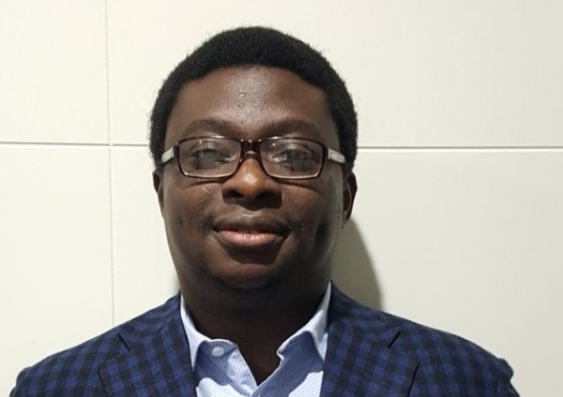UNSW young investigator awarded for kidney disease research
The research contributions of UNSW PhD student Dr Adeniyi Borire have been recognised by the American Association of Neuromuscular and Electrodiagnostic Medicine.
The research contributions of UNSW PhD student Dr Adeniyi Borire have been recognised by the American Association of Neuromuscular and Electrodiagnostic Medicine.

Gabrielle Dunlevy
UNSW Media Office
02 9385 1933
g.dunlevy@unsw.edu.au
UNSW PhD student Dr Adeniyi Borire has been recognised for a manuscript on the effects of haemodialysis on intraneural blood flow in end-stage kidney disease.
Dr Borire has won the American Association of Neuromuscular and Electrodiagnostic Medicine (AANEM) 2017 Golseth Young Investigator Award.
His research with PhD supervisors Professors Arun Krishnan and Matthew Kiernan and Dr Neil Simon and other co-authors was judged on scientific merit, methodology, manuscript form and Dr Borire’s contributions to the project.
In the research, neuromuscular ultrasound was used to quantify intraneural blood flow (detectable blood flow within nerves) in 18 patients with end-stage kidney disease.
Current ultrasound technology cannot detect blood flow under normal physiological conditions, however blood flow becomes detectable when nerves are diseased, because there is usually an increase in blood flow when tissue injury occurs.
The research found even a single session of haemodialysis made significant improvements to blood flow, highlighting the therapeutic effect of dialysis on nerve structure and function.
“Previous studies have shown that nerve function, especially that of the ion channels, improves following dialysis,” Dr Borire says.
“Our study confirms that the nerve structure is also improved. Dialysis reduced both the nerve size and the volume of intraneural blood flow. This is positive, and suggests that dialysis may be neuroprotective.”
Dr Borire’s PhD at UNSW is focused on the development of biomarkers for the early detection of axonal neuropathies, using neuromuscular ultrasound.
He will formally receive his prize in the US later this year, and his abstract will be published in the journal Muscle and Nerve.
The award was established in 1998 to honour Dr James Golseth, a founding member of the AANEM, and is presented annually for original research on neuromuscular and electrodiagnostic medicine.